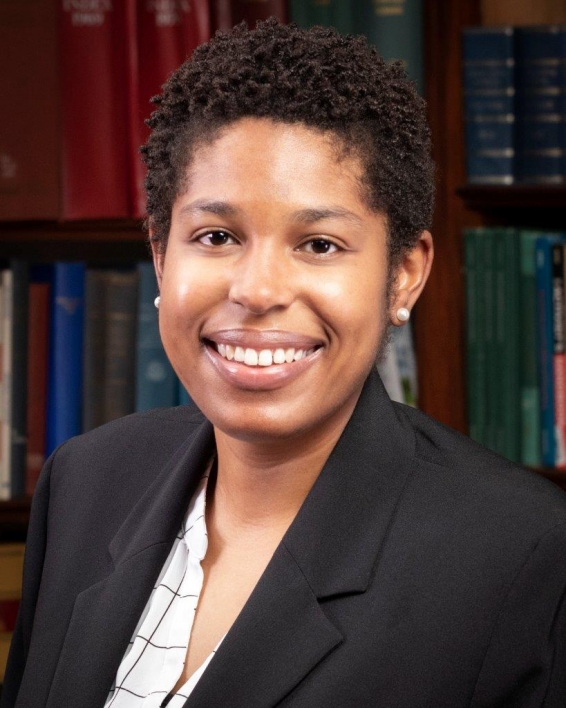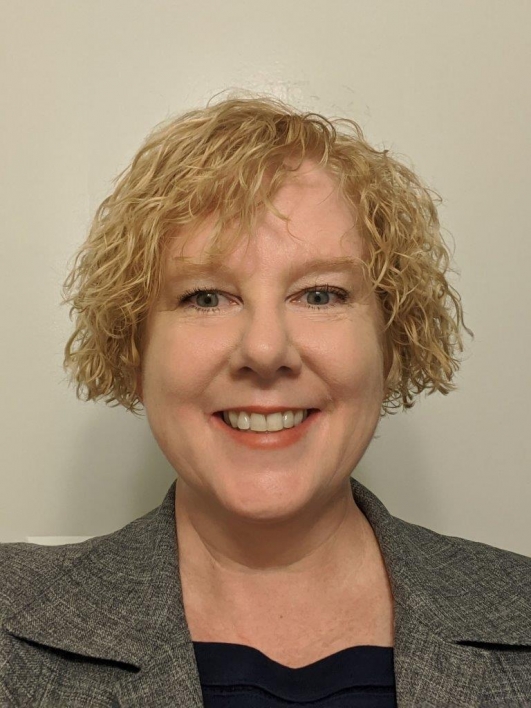7 ASU graduate alumni earn placements in prestigious science policy program

U.S. Capitol in Washington, D.C. Photo by Charlie Leight/ASU News
Arizona State University contributed five new and two returning graduate alumni to the 2021–22 cohort of the Science and Technology Policy Fellowship program administered by the American Association for the Advancement of Science (AAAS).
Now in its 49th year, the Science and Technology Policy Fellowship program places highly trained scientists and researchers in posts throughout the federal government, where they advance projects that increase evidence-based decision making while exploring government careers. The 2021–22 cohort includes 284 fellows sponsored by AAAS, the Moore Foundation and other partners among professional and scientific societies.
With their placements in this prestigious and impactful program, ASU colleges and schools continue to produce leaders who shape the next generation of federal science and technology policy.
Many of the new fellows used ASU's program for Distinguished Graduate Fellowships during the application process. The program hosts information sessions and speaking engagements from previous fellows, and assists applicants with getting constructive feedback on early drafts of applications. Former program director Joshua Brooks said that placements in the Science and Technology Policy Fellowship exemplified ASU’s charter.
“Part of ASU's charter is advancing research and discovery of public value,” Brooks said. “Those who are best situated to determine public value and mobilize effective research and discovery are often in government. ASU’s STPF fellows advance ASU’s charter in the most direct way.”
Center for Biology and Society
Two first-year fellows are recent graduates who worked in the Center for Biology and Society in the School of Life Sciences, where they earned PhDs in biology and society.
Center for Biology and Society Director Jane Maienschein said that the fellowship placements highlighted the center’s track record of successfully fostering inclusive and collaborative learning about diverse and interdisciplinary topics.
“The AAAS Science and Technology Fellows Program provides exceptional opportunities for our graduates,” Maienschein said, adding that she expects that they will “share those experiences with others as they move forward to impact the world.”
Theo Tiffney
Theo Tiffney completed a PhD in 2020. Tiffney's dissertation discussed the history of treatments for hepatitis C and the effects of federal policy on treatment access barriers. Tiffney moves to the National Institutes of Health's Office of AIDS Research and will work on a variety of topics and projects related to HIV/AIDS research.
Tiffney’s adviser, Robert Cook-Deegan, was a fellow in 1982–83 and said the experience is life-changing.
“(It) was the first time I felt like my skills were being fully used,” Cook-Deegan said. “I felt easy to replace as a molecular biology postdoc and physician, and it was exhilarating to find that translating what was going on in science, engineering and medicine for those making policy decisions might actually help them make those decisions better. I never went back. The rest of my career was inflected by the fellowship year."
Steve Elliott
Steve Elliott finished his work at CBS in 2017, and for the past four years he has been a postdoctoral researcher at ASU's Center for Gender Equity in Science and Technology, where he studied federal science funding programs. He'll spend the next year at the National Oceanic and Atmospheric Administration working on topics of data governance for the Weather Program Office.
Kimberly A. Scott, director of the Center for Gender Equity in Science and Technology (CGEST), said that supporting male allies is an important component of the center's mission of improving social systems so that women of color become change agents in science and technology.
“I believe preparing CGEST researchers to synthesize the knowledge gathered during their tenure and apply it to policy is how we can encourage structural shifts,” Scott said. “Dr. Elliott's placement at (the Science and Technology Policy Fellowship) reflects this ambition — to motivate change well beyond our university to nurture more equitable outcomes for all.”
Ira A. Fulton Schools of Engineering
Two fellows received PhDs in civil, environmental and sustainable engineering from the School of Sustainable Engineering and the Built Environment in the Ira A. Fulton Schools of Engineering, while a third finished her PhD research there after her lab moved to ASU.
Evvan Morton
Evvan Morton received her PhD in 2020, for which she studied the effectiveness of U.S. policies that govern carbon dioxide emissions and explored political, technological and ethical considerations for carbon dioxide removal. Morton also received a graduate certificate in responsible innovation from the School for the Future of Innovation in Society, where Ira Bennett encouraged her to apply for the Science and Technology Policy Fellowship. She has begun work at the Department of Energy in the Office of Sustainable Transportation, where she'll work on decarbonization policies related to electric vehicles, biofuels and hydrogen fuel cells.
"I learned about the AAAS (Science and Technology Policy) Fellowship in my first year of graduate school, and I had been working towards it ever since,” Morton said. “I am so excited to finally be on the other side and have the opportunity to use my engineering knowledge to influence policy."
Emily Bondank
Emily Bondank is a second-year fellow at the U.S. Agency for International Development (USAID), where she is moving from the Water Office to the Center for Water, Security, Sanitation and Hygiene. She received her PhD in 2019 after studying climate change adaptation of water distribution systems. In her second fellowship year, she'll support water security, sanitation and hygiene programming and applying scientific knowledge to improve climate resilience.
Bondack noted that the Science and Technology Policy Fellowship has given her “the unique opportunity to move beyond theory to learn how to identify and influence the practical factors that underpin sustainable and resilient water and sanitation service delivery.”
Avni Solanki
When Avni Solanki came to ASU’s Biodesign Institute in 2016, her interests in science policy ignited.
Solanki arrived with her adviser, then newly recruited Treavor Boyer, and while at ASU, she finished her University of Florida PhD on filtering pharmaceutical pollutants and recovery of nutrients from source-separated urine using biochar.
Through her interactions with her ASU colleagues and attending numerous seminars, Solanki was inspired to focus on the role of science in policy. After several years of teaching and leading a research center at Washington University in St. Louis, she’ll soon be addressing water policy for the Department of State.
Bradley Lusk
The Biodesign Institute also influenced first-year fellow Bradley Lusk, who received a PhD in biological design from the School for Engineering of Matter, Transport and Energy, where he studied in the Swette Center for Environmental Biotechnology. Lusk researched how to use microorganisms to perform water filtration and produce renewable energy, which led him to co-found Precient Technologies with ASU Professor Bruce Rittmann. He also built on his ASU experience with educational engagement to found a nonprofit organization called Science The Earth.
Lusk’s fellowship is with the U.S. Agency for International Development (USAID), for which he investigates water quality for development projects that provide water to international communities to ensure that they advance sustainable access to food, water, sanitation and hygiene.
“ASU cultivates a culture of thinking about the world in terms of grand challenges,” Lusk said. “The Biological Design program encouraged its members to consider science, policy and law, and access to a global network of professionals during my graduate studies played the most substantial role in my decision to join USAID via the AAAS fellowship.”
School for the Future of Innovation in Society and School of Sustainability
Carole Mars
Carole Mars is continuing a second year in the Department of Defense's Office of the Deputy Assistant Secretary of Defense for Environment and Energy Resilience. Mars trained originally as a PhD analytical chemist at Penn State University, and in 2021 she completed a Master of Science in science and technology policy from ASU's School for the Future of Innovation in Society. At the Department of Defense, Mars will continue work on improving sustainable acquisition policy, raising visibility on circular economy initiatives at the department, implementing supplier carbon emission reporting policy and supporting efforts to expand material disclosure reporting to better manage chemical supply chain risk.
“My master’s program introduced me to the world of policy and (the Science and Technology Policy Fellowship),” Mars said. “(The fellowship) has shown me there is a place for me in policy, where my experience can truly have an impact. I am now charting a career change to stay in the federal government, hopefully with the DOD, to realize that impact.”
Additionally, Christina Wong, who received her PhD from the School of Sustainability, completed the second year of her fellowship in September at the USAID Office of Energy and Infrastructure.
UPDATE: This article has been updated to include information about Bradley Lusk, who was inadvertently omitted in the initial version.
More Law, journalism and politics

5 takeaways about artificial intelligence and elections
Next year’s midterm elections are happening at a crucial time in the adoption of AI, with concerns that the new technology could…

ASU dominates Rocky Mountain Emmys, showcasing range of talent
Arizona State University stole the spotlight at the Rocky Mountain Southwest Emmys, walking away with an impressive haul of shiny…

New First Amendment Academy empowers citizens with knowledge about 5 core freedoms
According to a 2024 survey, there is widespread misunderstanding among many Americans around the nuances of the First Amendment.…






